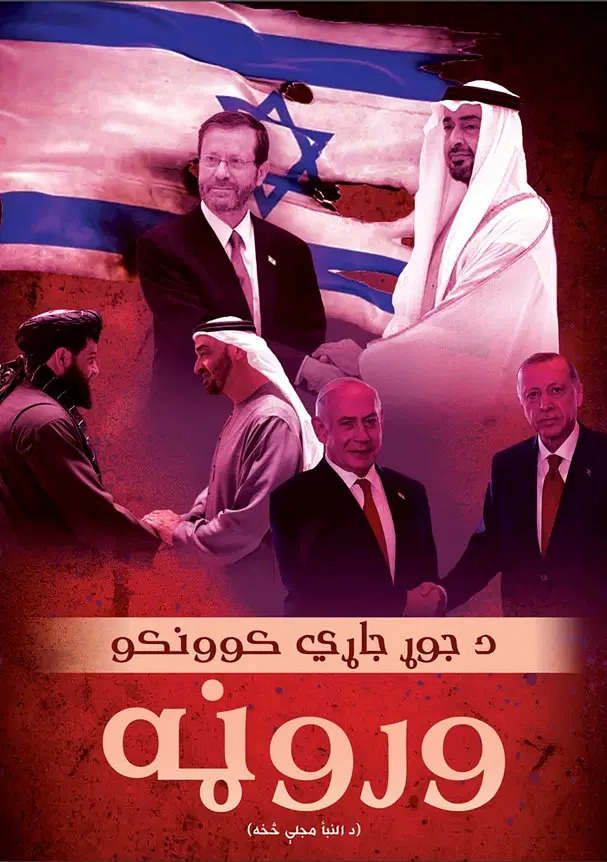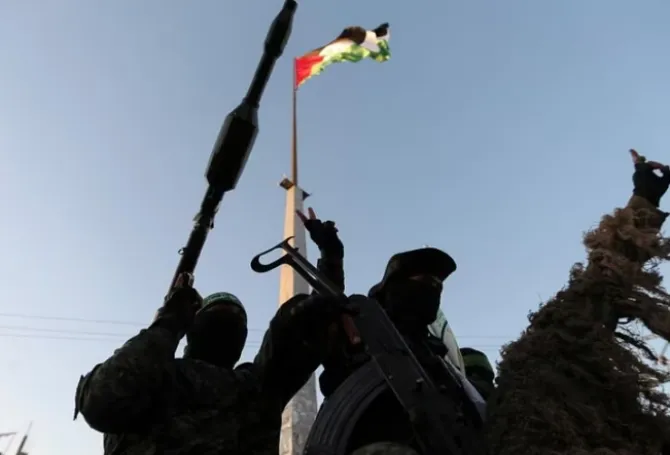The aftermath of the shocking terror strike against Israel is only beginning to unravel. The attack was mounted by Ḥarakah al-Muqāwamah al-ʾIslāmiyyah or Hamas, an Islamist militia movement, and a proscribed terror group in multiple countries, anchored around the Palestinian cause. The scale of this attack was not anything witnessed by Israel since the 1973 Yom Kippur War. It has also severely dented Israel’s celebrated model of water-tight ‘securitisation’.
The Israel-Palestine conflict has defined West Asian politics for generations. However, the October 7 attack will set a new precedent for the region’s future security designs. Hamas largely operates around the Palestine cause itself, and has rarely jumped into other battlefields around the world. While its name is known well around West Asia, and the Palestine cause has been a case towards mobilisation for Islamist groups for decades, narrative-wise Hamas was never a household name beyond a point unlike Al-Qaeda or the Islamic State (ISIS or Daesh). Until now.
Hamas’ mandate is not simple. While it encapsulates a pro-Palestine, Islamist bend, it also works against a political solution, prioritises military actions, and has an ‘absolutist’ view, meaning it largely stands against a ‘two-state solution’. It is also not the only such group incubated by the Israel-Palestine issue; others such as the Palestine Islamic Jihad (PIJ), and ones stationed beyond the geography of Gaza, like Hezbollah in Lebanon, also operate around this fault line.
The Palestine cause may have been on the backburner of both regional and international narratives, but it was consistently visible in propaganda released by the likes of Al-Qaeda and IS alike.
An expansion of counter operations from Israel could also include Lebanon and Syria due to this, both Beirut and Damascus having regularly faced Israeli air strikes, the former against Hezbollah and the latter against other anti-Israel groups.
The Palestine cause may have been on the backburner of both regional and international narratives, but it was consistently visible in propaganda released by the likes of Al-Qaeda and IS alike. From the South Asian region, after Hamas’ struck, statements from the interim government of the Taliban in Kabul, the Tehrik-e-Taliban Pakistan (TTP), and Al-Qaeda in Indian Subcontinent (AQIS), among others, gave their tacit support towards Hamas and blamed Israel’s actions for the events that have unfolded.
Over the past months, Israel’s domestic politics have also been a feature of coverage from Islamist ecosystems on issues such as that of the Al Aqsa Mosque in Jerusalem, specifically calls to keep Al Aqsa Mosque open for Jewish people. In fact, Hamas’ commander blamed for designing the audacious strike, a Palestinian terrorist called Mohammed Deif, has titled the operation ‘Al Aqsa Flood’, a narrative aiming to re-centre a sidelined pan-Islamic unity towards Jerusalem or Al Quds (its Arabic name).

Screenshot of the October 2023 issue of Islamic State Khorasan’s ‘Voice of Khorasan’ in Pashto criticising Muslim leaders, including the Taliban, normalising relations with Israel either directly or indirectly.
Iran’s Ayatollah Khamenei, posting his message in English in the aftermath of the attack on X used the hashtag #AlAqsaStorm while praising the “minds and efforts of the resourceful, intelligence designers” of the attack without mentioning Hamas by name while denying any role.
From Israel’s point of view, equating Hamas to IS also gives it a much wider scope and leeway to conduct counterterror operations in Gaza and wider Palestinian territories. Both Israeli and US leaderships have directly equated the actions of Hamas to IS during its heyday between 2013 and 2017, when videos of brutal violence by the group were rampantly available.
Ironically, it would be surprising if IS and its leadership supported Hamas. Intra-jihadist rivalries are real and all Islamist groups, even if galvanised by the same core issues such as Palestine or Kashmir, have different interests and stakes. For example, the beginnings of IS were seeded in the collapse of Al-Qaeda in Iraq as disagreements between regional leadership and Osama Bin Laden broke out. Scholar Charles Lister called this a ‘revolution from within’, as instead of playing second fiddle to Laden, jihadist ideologue Abu Musab al-Zarqawi wanted to chart his own course after finding Al-Qaeda not ambitious enough within West Asia, despite the 9/11 attacks.
Intra-jihadist rivalries are real and all Islamist groups, even if galvanised by the same core issues such as Palestine or Kashmir, have different interests and stakes.
The next area of concern will be the Israeli response. Israel’s Prime Minister Benjamin Netanyahu said that Israel did not start this war, but it will finish it. Many political and military quarters have reiterated that Hamas will not exist after Israel conducts its response. The reality on not countering, but eliminating terror groups, is more complex.
Hamas’ leadership enjoys foreign patronage from the likes of Iran, Qatar, and Turkey. Its leaders like Ismail Haniyeh reside in Doha, not Gaza or Ramallah. Hamas would be aware of the intensity of Israel’s incoming response, which by the looks of it may include a ground invasion. This also means Hamas operatives are prepared for death in such an eventuality.
As a comparison to the aims of ‘eliminating’ a terror group, in 2019, then US President Donald Trump announced a victory over IS and said that the group stood “defeated” after a US operation killed IS’s caliph Abu Bakr al-Baghdadi. Since then, at least two more caliphs have been killed, among many other middle-hierarchy members while pro-IS attacks remain comparatively small, yet consistent.
Of course, we have another example in Afghanistan, where the Taliban is now in power after 20 years of war as part of the post-9/11 ‘war on terror’. As a contrarian argument, Al-Qaeda has been significantly debilitated since Laden’s killing in 2011 in Pakistan and his successor, Ayman al-Zawahiri being killed in Kabul in 2022. Between these two cases, there are enough learnings to incorporate.
Finally, Hamas remains a regional and targeted group around the Palestine issue. Despite comparisons of war crimes conducted by Hamas to IS and Al-Qaeda, similarities between these jihadist groups are often not linear. While most Islamist ecosystems will celebrate a strike against Israel, that does not automatically mean fundamental or institutional support for Hamas. However, the security and counterterror paradigm in the region will now be reshaped by an Israeli response, and others may well have to hedge their strategic bets around this.
This commentary originally appeared in Deccan Herald.
The views expressed above belong to the author(s). ORF research and analyses now available on Telegram! Click here to access our curated content — blogs, longforms and interviews.





 PREV
PREV


